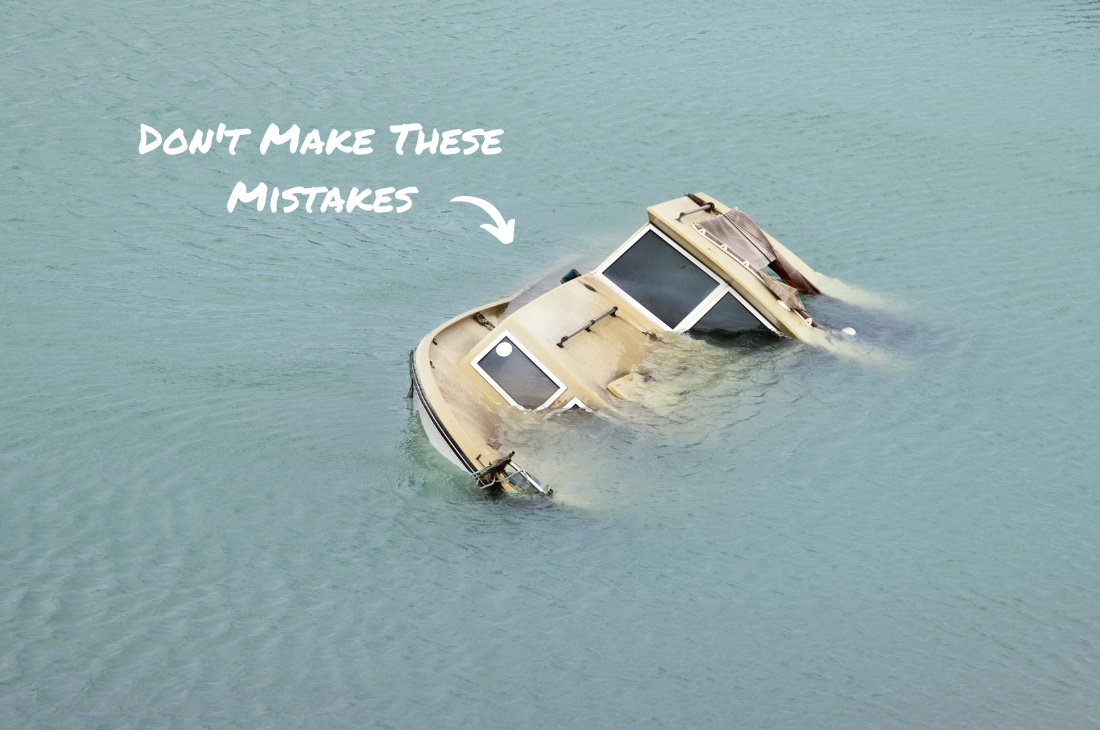
7 Boating Mistakes You Should Avoid
When you spend time on the water with your friends and family, it's easy to forget that you're still out in the elements. You can easily make a mistake that could put you and your loved ones in danger. In the article, we discuss seven common mistakes boaters make so you can avoid them too!
1. Running Aground
Running aground is the most common mistake made by boaters, but it's also one of the easiest to avoid. Running aground occurs when a boat's hull touches bottom before it has slowed enough to stop moving forward. This can happen in any body of water, including lakes and rivers as well as oceans. In some cases, running aground may be unavoidable due to strong currents or other factors beyond your control. However, most times it can be avoided if you are aware of what causes boats to run aground and take steps accordingly before entering a new area or situation on your boat.
The main reason why boats run aground is poor navigation. If you don't know where you're going or how long it will take until reaching your destination (or even if there is one), then chances are good that something will go wrong during your trip--and running aground could easily be part of the problem! Make sure all members aboard know how far away from land they should stay based on current conditions; this way everyone stays safe while still enjoying their time out on open water.
2. Docking Issues
Boat hull repair is a job that requires a variety of skills. You may need to repair holes, fix cracks, or even replace damaged or worn out parts with new ones. When working on a boat's hull, it's important to have an understanding of how it was built so that you can properly identify and replace parts. You'll also need to be able to use blueprints or other instructions to guide your repair work. Additionally, it is helpful if you possess the ability to work with your hands, as you will be handling tools and parts that are very sharp and dangerous.
3. Pumping Fuel in the Wrong Place
When you're out on the water, it's easy to get distracted. Pumping fuel into the wrong place on your boat can be a huge headache, and it's easy to avoid. Just make sure you're following these steps:
1. Make sure you've turned off your engine before you start pumping fuel. Don't just assume it is—double check!
2. Check that you're pumping into the right tank for your boat (fuel tanks come in different sizes). If you're not sure, ask someone who knows about boats for help.
3. Keep an eye on how much fuel you're putting in so that you don't overfill and cause a spill.
4. Not Securing the Anchor Line
The most important skill needed to repair boat plumbing systems is the ability to read and understand diagrams, blueprints, and schematics. The diagram shows you where all of the parts are located and how they interact with one another, so it's essential that you can decipher this information.
You also need good mechanical skills, since you'll be working with tools and machinery on a regular basis. You may have to replace parts or make repairs using your hands, so being able to use tools effectively is essential.
5. Getting Lost
Know where you are and how to get back. A GPS is a great tool for navigating, but you need to know how to use it properly. If the device fails or becomes damaged, having a chart will be invaluable.
Be prepared for bad weather conditions by checking the local weather forecast before heading out on your boat trip. Knowing what kind of storms might be coming could help keep everyone safe!
Don't forget about tides and currents when planning your route; they can drastically change how fast or slow boats move depending on where they're going and what time of day it is!
6. Forgetting to Put the Drain Plug in
Forget to put the drain plug in? You could be in for some trouble. The drain plug sits at the bottom of your boat and allows water to flow out when you pull it up, but if you forget to put it back in, you run the potential of finding yourself with a sunken boat.
7. Running the Engine Dry
Running the engine dry is one of the most common boating mistakes. It's also another one of the easiest to avoid!
If you run your boat's engine dry, it can seize up or even break down. This can cause expensive repairs and leave you stranded on the water without power--not exactly what you want when out in a boat with family or friends. If this happens, it's typically not covered by insurance either!
Boating is fun, but it can also be dangerous
Boating is fun, but it can also be dangerous. It's important to be prepared before going out on the water and know what you are doing. There are many things that can go wrong while boating, so this article will help you avoid some of the most common mistakes.
We hope that you've learned something from reading this article, and that it helps keep you safe while boating. If you have any questions or comments, please leave them below!
